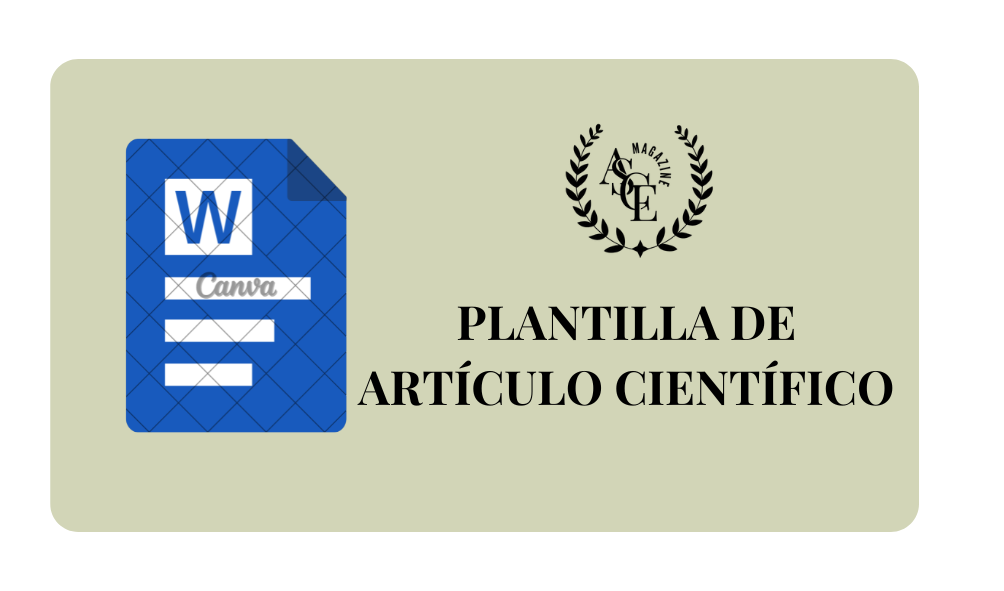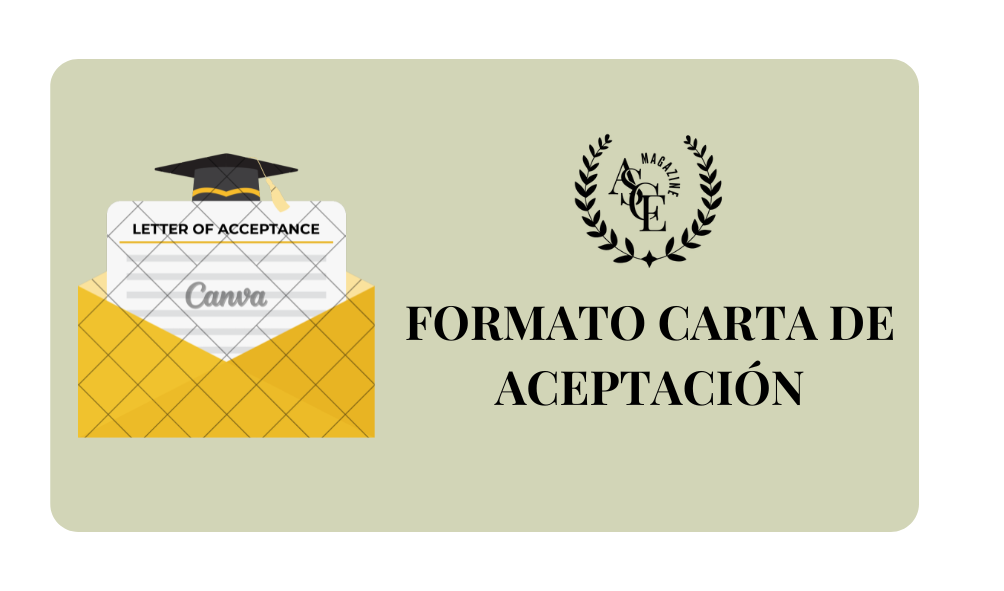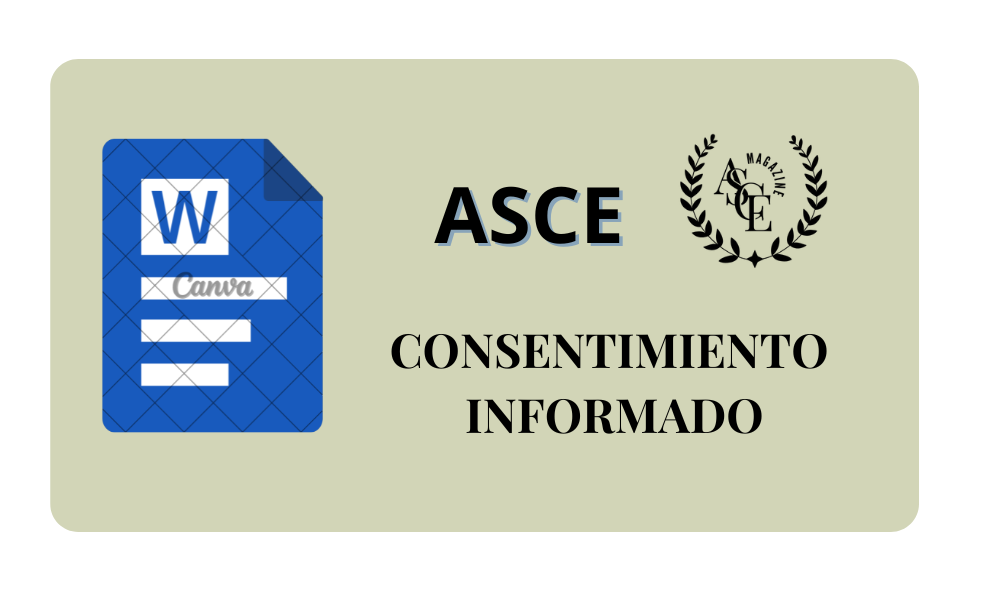Artificial Intelligence and Personalization of Learning in Social Studies: Challenges and Opportunities.
DOI:
https://doi.org/10.70577/ASCE/2231.2251/2025Keywords:
Artificial Intelligence, Personalized Learning, Social Studies, Problem Solving, Educational Transformation.Abstract
This study examines the application of Artificial Intelligence (AI) and the incorporation of customized learning in Social Studies instruction, focusing on problem analysis and resolution, as well as the possibility for systemic educational revolution. The study employed a mixed-approaches approach, integrating quantitative analysis of diagnostic assessments and academic achievement with qualitative methods, including semi-structured interviews and content analysis. The sample comprised secondary school students and Social Studies educators, chosen by stratified sampling. Innovative technologies, including conversational intelligent tutors, historical-social simulations, and real-time feedback systems, were used, facilitating the development of adaptive and multimodal learning environments. Quantitative results indicated statistically significant improvements in academic performance and motivation, but qualitative findings underscored favorable perceptions of individualized learning, fair access to information, and the advancement of student self-regulation. Concerns arose over technological dependence, digital equity, and the necessity for specialized teacher preparation. The study illustrates that the application of AI in Social Studies increases personalized learning and fosters students' capacity to evaluate complex problems and critically reflect on social phenomena. Moreover, it regards AI as a strategic asset to facilitate systemic changes in educational frameworks, integrating technological advancements with inclusive and ethical teaching methodologies. These findings initiate new avenues of inquiry about sustainability, critical thinking, and digital citizenship within AI-mediated learning contexts.
Downloads
References
Acosta Porras , J. S., Moyon Sani, V. E., Arias Vega, G. Y., Vásquez Alejandro, L. M., Ruiz Cires, O. A., Albia Vélez, B. K., & Bernal Parraga, A. P. (2024). Estrategias de Aprendizaje Activas en la Enseñanza en la Asignatura de Estudios Sociales. Ciencia Latina Revista Científica Multidisciplinar, 8(5), 411-433. https://doi.org/10.37811/cl_rcm.v8i5.13320 DOI: https://doi.org/10.37811/cl_rcm.v8i5.13320
Albán Pazmiño , E. J., Bernal Párraga, A. P., Suarez Cobos , C. A., Samaniego López, L. G., Ferigra Anangono, E. J., Moreira Ortega, S. L., & Moreira Velez, K. L. (2024). Potenciando Habilidades Sociales a Través de Actividades Deportivas: Un Enfoque Innovador en la Educación. Ciencia Latina Revista Científica Multidisciplinar, 8(4), 3016-3038. https://doi.org/10.37811/cl_rcm.v8i4.12549 DOI: https://doi.org/10.37811/cl_rcm.v8i4.12549
Alonso, R. R. (2025). Inteligencia Artificial y su impacto en la educación a distancia en América Latina. RIED. Revista Iberoamericana de Educación a Distancia, 28(1), 11–33. https://doi.org/10.5944/ried.28.1.41538 DOI: https://doi.org/10.5944/ried.28.1.41538
Atencio‑González, R. E., Calderón‑Yánez, M. V., Sangucho‑Leines, E. M., & Zamora‑Encalada, G. M. (2025). Inteligencia Artificial como herramienta para personalizar el aprendizaje en ciencias sociales en la educación ecuatoriana. Cognopolis. Revista de Educación y Pedagogía, 3(2), 21–37. https://doi.org/10.62574/wnvtft78 DOI: https://doi.org/10.62574/wnvtft78
Baillifard, A., Gabella, M., Lavenex, P. B., & Martarelli, C. S. (2023). Implementing Learning Principles with a Personal AI Tutor: A Case Study. arXiv. DOI: https://doi.org/10.1007/s10639-024-12888-5
Banco Mundial & OIT. (2025, enero 23). La IA debe amplificar las capacidades educativas, no sustituirlas. El País. https://elpais.com/america/termometro-social/2025-01-23/la-ia-debe-amplificar-las-capacidades-educativas-no-sustituirlas-banco-mundial.html
Bayly‑Castañeda, K. (2024). Crafting personalized learning paths with AI for lifelong learning. Frontiers in Education. https://doi.org/10.3389/feduc.2024.1424386 DOI: https://doi.org/10.3389/feduc.2024.1424386
Bernal Parraga , A. P., Coronel Ramírez, E. A., Aldas Macias , K. J., Carvajal Madrid, C. A., Valarezo Espinoza, B. D. C., Vera Alcivar, J. G., & Chávez Cedeño, J. U. (2025). The Impact of Artificial Intelligence on Personalized Learning in English Language Education. Ciencia Latina Revista Científica Multidisciplinar, 9(1), 5500-5518. https://doi.org/10.37811/cl_rcm.v9i1.16234 DOI: https://doi.org/10.37811/cl_rcm.v9i1.16234
Bernal Parraga , A. P., Santin Castillo, A. P., Ordoñez Ruiz, I., Tayupanta Rocha, L. M., Reyes Ordoñez, J. P., Guzmán Quiña , M. de los A., & Nieto Lapo, A. P. (2024). La inteligencia artificial como proceso de enseñanza en la asignatura de estudios sociales. Ciencia Latina Revista Científica Multidisciplinar, 8(6), 4011-4030. https://doi.org/10.37811/cl_rcm.v8i6.15141 DOI: https://doi.org/10.37811/cl_rcm.v8i6.15141
Bernal Parraga , A. P., Tello Mayorga, L. E., Cintia Guisela, A. V., Troya , L. A., Pluas Muñoz, A. M., Mario Efren, C. Q., & Jumbo García, K. J. (2025). El impacto del uso de redes sociales en la autoestima de adolescentes. Ciencia Latina Revista Científica Multidisciplinar, 9(1), 498-517. https://doi.org/10.37811/cl_rcm.v9i1.15733 DOI: https://doi.org/10.37811/cl_rcm.v9i1.15733
Bernal Párraga, A. P., Armijos Minuche, A. de L., Granda Floril, S. C., Belduma Bravo, J. del C., Quiroz Ponce, K. G., & Aguirre Zambrano, J. A. (2025). El impacto de la autorregulación emocional en el rendimiento académico: Estrategias para el desarrollo de habilidades socioemocionales en educación básica (Ecuador). O Universo Observável, 2(2). https://doi.org/10.69720/29660599.2025.00053 DOI: https://doi.org/10.69720/29660599.2025.00053
Bernal Parraga, A. P., Toapanta Guanoquiza, M. J., Sandra Veronica, L. P., Borja Ulloa, C. R., Esteves Macias, J. C., Dias Mena, B. V., & Orozco Maldonado, M. E. (2024). Desarrollo de Habilidades Sociales y Emocionales a través de Proyectos Colaborativos en Educación Inicial: Estrategias Inclusivas para Estudian-tes con Necesidades Educativas Especiales. Ciencia Latina Revista Científica Multidisciplinar, 8(4), 10134-10154. https://doi.org/10.37811/cl_rcm.v8i4.13156 DOI: https://doi.org/10.37811/cl_rcm.v8i4.13156
Bernal, A., & Guarda, T. (2020). La gestión de la información es factor determinante para elaborar estrategias innovadoras en política educativa pública. Iberian Journal of Information Systems and Technologies, (E27), 35-48. https://core.ac.uk/download/pdf/487026121.pdf#page=35
Bhutoria, A. (2022). A systematic review using a human-in-the-loop model in AI-based education. AI in Education, 3(1), 35–48. https://doi.org/10.1016/S2666-920X(22)00023-6 DOI: https://doi.org/10.1016/j.caeai.2022.100068
Chen, C., Wang, Y., & Hong, J. (2023). A quantitative study on the effects of an interactive multimodal application for learning Tang poetry on knowledge retention. Journal of Educational Multimedia and Hypermedia, 32(3), 179–196. https://doi.org/10.1080/01933922.2023.2251141 DOI: https://doi.org/10.1080/01933922.2023.2251141
Contreras-Villalobos, T. (2024). Digging and building: How transformative mixed‑methods research facilitates a comprehensive understanding of educational phenomena. International Journal of Educational Research, 123, Article 102456. https://doi.org/10.1016/S2590-2601(24)00036-5 DOI: https://doi.org/10.1016/j.metip.2024.100170
Castillo Baño , C. P., Cruz Gaibor, W. A., Bravo Jacome, R. E., Sandoval Lloacana, C. F., Guishca Ayala, L. M., Campaña Nieto, R. A., Yepez Mogro, T. C., & Bernal Párraga, A. P. (2024). Uso de Tecnologías Digitales en la Educación para la Ciudadanía. Ciencia Latina Revista Científica Multidisciplinar, 8(4), 5388-5407. https://doi.org/10.37811/cl_rcm.v8i4.12756 DOI: https://doi.org/10.37811/cl_rcm.v8i4.12756
Delaney, V. (2025). Teaching high school students about generative AI: Two case studies of teacher practice and student reflection. Journal of Educational Technology & Society, 28(4), 115–132. https://doi.org/10.1080/00220671.2025.2510415 DOI: https://doi.org/10.1080/00220671.2025.2510415
Doğan, Y. (2025). Effectiveness of Artificial Intelligence Practices in the Social Sciences: Preschool Education Case. Sustainability, 17(7), 3159. https://doi.org/10.3390/su17073159 DOI: https://doi.org/10.3390/su17073159
du Plooy, E. (2024). Personalized adaptive learning in higher education. Heliyon, 10(4), e26117. https://doi.org/10.1016/j.heliyon.2024.e26117 DOI: https://doi.org/10.1016/j.heliyon.2024.e26117
Dumont, H., Hadjar, A., & Eckstein, K. (2023). On the promise of personalized learning for educational equity: A critical perspective. npj Science of Learning, 8, 8. https://doi.org/10.1038/s41539-023-00123-4 DOI: https://doi.org/10.1038/s41539-023-00174-x
Gligorea, I. (2023). Adaptive learning using artificial intelligence in e-learning. Education Sciences, 13(12), 1216. https://doi.org/10.3390/educsci13121216 DOI: https://doi.org/10.3390/educsci13121216
Guishca Ayala , L. A., Bernal Parraga, A. P., Martínez Oviedo, M. Y., Pinargote Carreño, V. G., Alcívar Vélez, V. E., Pinargote Carreño, V. L., Pisco Mantuano, J. E., Cardenas Pila, V. N., & Guevara Albarracín , E. S. (2024). Integración De La Inteligencia Artificial En La Enseñanza De Matemáticas Un Enfoque Personalizado Para Mejorar El Aprendizaje. Ciencia Latina Revista Científica Multidisciplinar, 8(6), 818-839. https://doi.org/10.37811/cl_rcm.v8i5.14114 DOI: https://doi.org/10.37811/cl_rcm.v8i5.14114
Hmoud, M. (2025). From experience to engagement: a mixed‑methods investigation of AI and XR in high school. Frontiers in Education. https://doi.org/10.3389/feduc.2025.1617132 DOI: https://doi.org/10.3389/feduc.2025.1617132
Hu, S. (2024). The effect of artificial intelligence-assisted personalized learning on student learning outcomes: A meta-analysis. Science Insights Education Frontiers, 31(1), 36–51. https://doi.org/10.15354/sief.24.re395 DOI: https://doi.org/10.15354/sief.24.re395
Jara Chiriboga , S. P., Troncoso Burgos, A. L., Ruiz Avila, M. M., Cosquillo Chida, J. L., Aldas Macias, K. J., Castro Morante, Y. E., & Bernal Párraga, A. P. (2025). Inteligencia Artificial y Aprendizaje Personalizado en Lenguas Extranjeras: Un Análisis de los Chatbots y los Asistentes Virtuales en Educación. Revista Científica De Salud Y Desarrollo Humano , 6(1), 882–905. https://doi.org/10.61368/r.s.d.h.v6i1.515 DOI: https://doi.org/10.61368/r.s.d.h.v6i1.515
León Ruíz , M. E., Bernal Párraga , A. P., Bustamante Peñaherrera , G. S., Yanza Rojas, C. J., Guzmán Quiña , M. de los A., Davila Amari , M. A., & López Villacis, D. E. (2024). Enfoques Pedagógicos para la Enseñanza de Estudios Sociales en Libros de Texto de Educación Básica Superior. Ciencia Latina Revista Científica Multidisciplinar, 8(4), 9132-9152. https://doi.org/10.37811/cl_rcm.v8i4.13060 DOI: https://doi.org/10.37811/cl_rcm.v8i4.13060
Létourneau, A. (2025). A systematic review of AI‑driven intelligent tutoring systems in K‑12 learning. Educational Research Review. https://doi.org/10.1186/s40561-024-00350-5 DOI: https://doi.org/10.1038/s41539-025-00320-7
Merino‑Campos, C. (2025). The impact of Artificial Intelligence on personalized learning in higher education: A systematic review. Trends in Higher Education, 4(2), 17. https://doi.org/10.3390/higheredu4020017 DOI: https://doi.org/10.3390/higheredu4020017
Padilla Chicaiza, V. A., Chanatasig Montaluisa, B. M., Moreira Cedeño, J. del C., Molina Ayala, E. T., Estela Teresa, S. V., & Bernal Parraga, A. P. (2025). Inteligencia Artificial y Aprendizaje de Idiomas: Personalización del Aula de Inglés a Través de Plataformas Adaptativas. Revista Veritas De Difusão Científica, 6(2), 477–506. https://doi.org/10.61616/rvdc.v6i2.643 DOI: https://doi.org/10.61616/rvdc.v6i2.643
Pallo‑Buse, L. A., Miles‑Flores, M. V., Yánez‑Monge, A. B., & Oña‑Vega, M. N. (2024). El futuro de la educación en ciencias sociales: Adaptación a nuevas realidades sociales. Revista Multidisciplinaria Perspectivas Investigativas, 4(esp.), 80–87. https://doi.org/10.62574/rmpi.v4iespecial.250 DOI: https://doi.org/10.62574/rmpi.v4iespecial.250
Parraga, A. P. B. (2024). La inteligencia artificial como proceso de enseñanza en la asignatura de estudios sociales. Ciencia Latina, Asunción, Paraguay. https://ciencialatina.org/index.php/cienciala/article/view/15141
Piedra‑Castro, W. I., Cajamarca‑Correa, M. A., Burbano‑Buñay, E. S., & Moreira‑Alcívar, E. F. (2025). La personalización del aprendizaje mediante inteligencia artificial en entornos educativos digitales. Revista de Investigación en Ciencias Sociales y Humanidades, 3(1), 45–61. https://doi.org/10.5281/zenodo.11134589
Quiroz Moreira, M. I., Mecias Cordova, V. Y., Proaño Lozada, L. A., Hernández Centeno, J. A., Chóez Acosta, L. A., Morales Contreras, A. M., & Bernal Parraga , A. P. (2024). Plataformas de Evaluación Digital: Herramientas para Optimizar el Feedback y Potenciar el Aprendizaje. Ciencia Latina Revista Científica Multidisciplinar, 8(5), 2020-2036. https://doi.org/10.37811/cl_rcm.v8i5.13673 DOI: https://doi.org/10.37811/cl_rcm.v8i5.13673
Roy, K., & Swargiary, K. (2024). Exploring the impact of AI integration in education: A mixed-methods study [Preprint]. SSRN. https://doi.org/10.2139/ssrn.4857648 DOI: https://doi.org/10.2139/ssrn.4857648
Saleem, S., Aziz, M. U., Iqbal, M. J., & Abbas, S. (2025). AI in education: Personalized learning systems and their impact on student performance and engagement. International Journal of Educational Research Open, 7, 100210. https://doi.org/10.1016/j.ijedro.2024.100210
Bañuelos Márquez, A. M., & Romero Martínez, E. (2024). Retroalimentación formativa con inteligencia artificial generativa: un caso de estudio. Wimb Lu, 19(2), 26–40. https://doi.org/10.15517/wl.v19i2.63262 DOI: https://doi.org/10.15517/wl.v19i2.63262
Seo, K. (2021). The impact of artificial intelligence on learner–instructor interactions in online learning. Journal of Educational Technology & Society. https://doi.org/10.1186/s41239-021-00292-9 DOI: https://doi.org/10.1186/s41239-021-00292-9
Strielkowski, W. (2025). AI-driven adaptive learning for sustainable educational transformation. Sustainable Development, 33(1), 144–156. https://doi.org/10.1002/sd.3221 DOI: https://doi.org/10.1002/sd.3221
Tancsics, T., Csapó, B., & Molnár, G. (2024). The role of AI-based adaptive learning systems in digital education. Frontiers in Education, 9, 1281234. https://doi.org/10.3389/feduc.2024.1281234
Thomas, D. R., Lin, J., Gatz, E., Gurung, A., Gupta, S., Norberg, K., Fancsali, S. E., Aleven, V., Branstetter, L., Brunskill, E., & Koedinger, K. R. (2023). Improving Student Learning with Hybrid Human‑AI Tutoring: A Three‑Study Quasi‑Experimental Investigation. arXiv. DOI: https://doi.org/10.1145/3636555.3636896
UNESCO. (2025, 20 de enero). Artificial intelligence in education: UNESCO advances key competencies for teachers and learners. UNESCO. Obtenido de UNESCO Web https://www.unesco.org/en/articles/artificial-intelligence-education-unesco-advances-key-competencies-teachers-and-learners
Vieriu, A. M. (2025). The impact of Artificial Intelligence (AI) on students' learning processes and academic performance. Education Sciences, 15(3), 343. https://doi.org/10.3390/2227-7102/15/3/343 DOI: https://doi.org/10.3390/educsci15030343
Villacreses Sarzoza, E. G., Nancy Maribel, M. C., Calderón Quezada, J. E., Víctor Gregory, T. V., Iza Chungandro, M. F., Tandazo Sarango, F. E., & Bernal Párraga, A. P. (2025). Inteligencia Artificial: Transformando la Escritura Académica y Creativa en la Era del Aprendizaje Significativo. Revista Científica De Salud Y Desarrollo Humano , 6(1), 1427–1451. https://doi.org/10.61368/r.s.d.h.v6i1.533 DOI: https://doi.org/10.61368/r.s.d.h.v6i1.533
Vorobyeva, K. I. (2025). Personalized learning through AI: pedagogical approaches and critical insights. CEDTech. DOI: https://doi.org/10.30935/cedtech/16108
Walter, Y. (2024). Embracing the future of artificial intelligence in the classroom: The role of digital agency. International Journal of Educational Technology in Higher Education, 21, 34. https://doi.org/10.1186/s41239-024-00448-3 DOI: https://doi.org/10.1186/s41239-024-00448-3
Wang, C. (2024). Understanding self‑directed learning in AI‑assisted writing. ResearchGate. https://doi.org/10.1016/j.edsci.2024.100470
Wang, S. (2024). Artificial intelligence in education: A systematic literature review. Computers & Education. https://doi.org/10.1016/j.compedu.2024.104675
Ward, B., Bhati, D., Neha, F., & Guercio, A. (2024). Analyzing the Impact of AI Tools on Student Study Habits and Academic Performance. arXiv. DOI: https://doi.org/10.1109/CCWC62904.2025.10903692
Yetişensoy, O. (2024). The effect of AI-powered chatbots in social studies education: A design-based research study. Education and Information Technologies, 29, 12485–12506. https://doi.org/10.1007/s10639-024-12485-6 DOI: https://doi.org/10.1007/s10639-024-12485-6
Yetişensoy, O., & Rapoport, A. (2023). Artificial intelligence literacy teaching in social studies education. Journal of Pedagogical Research, 7(3), 225–241. https://doi.org/10.33902/JPR.202320866 DOI: https://doi.org/10.33902/JPR.202320866
Zewei, T., Liu, A., Esbenshade, L., Sarkar, S., Zhang, Z., He, K., & Sun, M. (2025). Implementation considerations for automated AI grading of student work. arXiv. https://doi.org/10.48550/arXiv.2506.07955
Zamora Arana , M. G., Bernal Párraga, A. P., Ruiz Cires, O. A., Cholango Tenemaza, E. G., & Santana Mero, A. P. (2024). Impulsando el Aprendizaje en el Aula: El Rol de las Aplicaciones de Aprendizaje Adaptativo Impulsadas por Inteligencia Artificial en la Edu-cación Básica. Ciencia Latina Revista Científica Multidisciplinar, 8(3), 4301-4318. https://doi.org/10.37811/cl_rcm.v8i3.11645 DOI: https://doi.org/10.37811/cl_rcm.v8i3.11645
Downloads
Published
How to Cite
Issue
Section
License
Copyright (c) 2025 Deisy Andrea Ibarvo Arias, Benita Isabel Ibarbo Arias, Mónica Alejandrina Martínez Lastra, Ligia Ximena Alban Camino, Vilma Elizabeth Moyon Sani

This work is licensed under a Creative Commons Attribution-NonCommercial-NoDerivatives 4.0 International License.






























